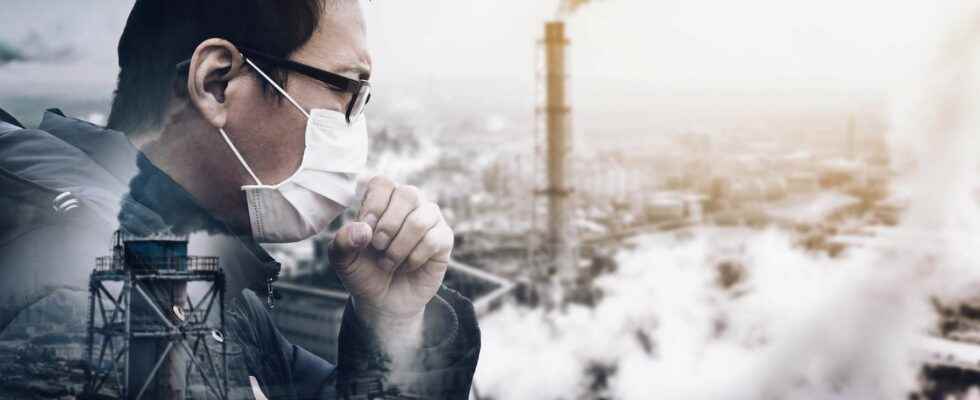The links between pollution and lung cancer have been known for a long time, but recently English scientists have deciphered some of the mechanisms underlying this observation. How do fine particles cause cancer?
You will also be interested
[EN VIDÉO] Interview 4/5: pollution, what health risks? With the increase in pollution levels, the question arises of its impact on human health. Each pollutant has different effects, some immediate and visible, others delayed and more insidious. In order to clarify the question, we interviewed Philippe Hubert, director of chronic risks at Ineris.
The fine particles which pollute theatmosphere are considered as oncogenes by theWorld Health Organizationthat is to say that exposure to them promotes the appearance of lung cancer as can do it the cigarette or theinhalation chemicals in the workplace. Particles less than 2.5 µm in diameter, PM2.5 can penetrate deep into the lungs and damage lung cells and turn them into cancer.
A poorly understood mechanism until the presentation of the work of the institute’s researchers Francis Crick from London to the Congress of theEuropean Society for Medical Oncology. According to them, PM2.5 triggers the appearance of cancer in patients carrying mutations in the EGFR gene, a gene implicated in almost half of lung cancers in non-smokers. Full scientific publication is expected soon.
Mutations and inflammation
Exposure to PM2.5 alters the biology of EGFR-mutated lung cells, they adopt a behavior similar to stem cells cancerous. The presence of the mutations alone is not enough to cause cancer; 18% of healthy lung tissue analyzed by scientists at the Francis Crick Institute has mutations in the EGFR gene, and 33% in the KRAS gene, which is also implicated in cancer.
These two genes accumulate mutations naturally with age, ” nevertheless, when lung cells are exposed to pollutants from theairwe observe more cancers and these appear faster than when lung cells are not exposed to pollutants, suggesting that air pollution promotes lung cancer initiation in mutated cells » explains Charles SwantonFrancis Crick Institute and Chief Clinician at Cancer Research UK during his presentation on September 10.
Scientists have also highlighted the involvement of inflammation. Air pollutants are perceived as a threat and activate immune defenses in the lungs. Of the macrophages infiltrate and secrete IL-1ß, a cytokine which accelerates the proliferation of EGFR mutated cells. Previous results have shown that treatment with anti-IL-1ß antibodies can reduce the incidence of lung cancer, supporting the observation made here.
Scientists do not specify the exposure threshold beyond which the risk of developing lung cancer increases. In addition, there are other risk factors for this disease which affects approximately 45,000 French people each year. The study presented here only focused on atmospheric pollutants. Here is an additional argument, if one still needed one, to limit our use of fossil fuels which constitute both a health and an environmental problem.
Interested in what you just read?
